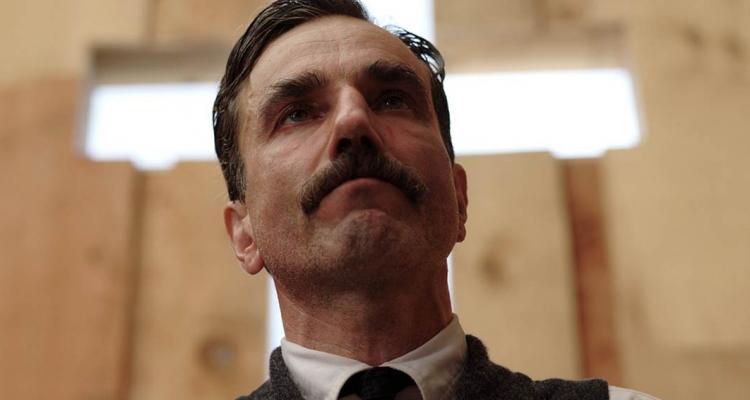From the Classic Hollywood period, celebrated actors like John Wayne and Humphrey Bogart had one trait that was undeniable and lead to impersonations and parodies alike: their voices. Since the passing of the classical period in film, the rise of chameleon actors has gained huge momentum with actors becoming a character to the point of vocal alteration. Actors and directors are now using voice as a means to tell their story, creating dimensional characters, and providing memorable performances. One such actor who does this time and time again is Daniel Day-Lewis.
READ MORE: The Essentials: The Films Of Paul Thomas Anderson
In a video essay by Now You See It, the vocal control Day-Lewis provides as Daniel Plainview in “There Will Be Blood” is given careful examination. This could be said for any of Day-Lewis’s performances, but the dynamic nature of Plainview’s character, his dominating tone, and cool demeanor allows for an exploration in the art of fine-tuning voice and molding a character grappling with control and competition. The video essay first looks back at the performances of John Wayne. A manifestation from the Old West, Wayne commands the screen through movement and a controlled voice that rarely loses its deep, masculine, Southern tone. This mode of narrative control is subtle, but simultaneously leaves a defining impact on the dominating character and the narrative following suit.
READ MORE: Ranked: Paul Thomas Anderson’s Music Videos
In the first moments of “There Will Be Blood,” we see Daniel Plainview, his words are heard in narration. By the time the audience is face-to-face with the dynamic character, we find him controlling the narrative with his cool voice, leaving the scene, and stopping the camera with his own dominating presence. The ways in which we see voice making an impact on ‘Blood’s plot can be found by noting how it directs the narrative, controls the shot, and how characters control the voices of others. The video essay highlights just how powerful voices are through Daniel Plainview and Eli Sunday. Paul Thomas Anderson’s characters are in a constant battle for domination, one the director of the congregation, the other an oil well. It’s a fascinating deconstruction of power and vocal performance. As Plainview becomes the assumed victor, the coolness of his voice is lost, and the control we were once charmed by and accustomed to becomes erratic. At what cost does the mastery of the John Wayne style of voice lose its mysticism and show us its faults?

